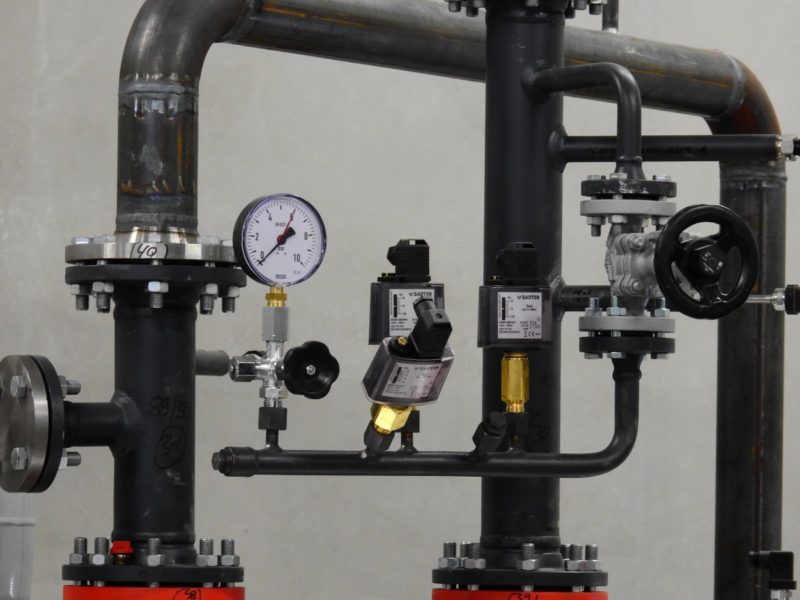Are you wondering how does a water heater explode? Don’t worry, and you have landed at the best place. Explosions in water heaters are frightening, and maybe they will occur. Water heater explosions can occur for various causes, but the most common cause is high pressure.
Everything which puts too much pressure on the water heater, including a faulty anode rod or an accumulation of silt, might lead it to explode. Because of the high fire risk, gas leakage can cause the water heater to explode.
Today water heaters include a variety of protective measures that reduce the risk of explosion. Nevertheless, many water heaters aren’t well maintained, and the threat remains. A Temperature & Pressure Relief Valve is a protective measure included in newer water heaters. To stay in good operating order, these valves need to be serviced. Continue to reading to discover more.
Reasons A Water Heater Explode
Three main factors cause water heater explosions. High pressure, gas leakage, and faulty setup are all examples. The below-mentioned are the main reasons behind the water heater explosion, which helps you learn how does a water heater explode.
#1. Exceeding pressure in the tank
High pressure within the unit could affect water heaters, power, and gas. Whenever the water within the tank heats up, it creates more tension. Even as water within the tank gets hot, it spreads, increasing the pressure within. Failure of pressure and temperature relief valve to release and discharge pressure. A problem with the top thermostat’s maximum control valve. A water heater which hasn’t been serviced correctly. When the water pressure within the tank rises too excessive, a safety mechanism known as the temperature and pressure relief valve, called the T&P valve, releases it.
That safety mechanism is included on all contemporary water heaters. Most vintage water heaters, unfortunately, don’t have this function. The pressure seems to have no means to discharge if the stress and temperature relief valve breaks or is clogged, causing the water heater to blow. The water in the hot water system starts growing as it gets hot. The T&P valve is opened to relieve pressure if the force from water expansion becomes too severe.
A substantial red button above the top thermostat serves as the high limit control. The water temperature may continue to rise to a dangerous degree if the thermostat does not control electricity to the warming components. If the high limit switch trips, the water heater thermostat or heating element may run out of power.
This high control valve is on the top thermostat and is meant to trigger when the water temperature in the water heater surpasses 180 °. If somehow the high limit switch fails to activate, the pressure within the water heater may rise to the point where it explodes owing to the increasing pressure. This would require a 2-3 punch of the high control valve malfunction and the pressure and temperature relief valve blockage to occur in this situation. This is an unlikely circumstance. On the other hand, old water heaters might fail either one of those safety safeguards.
#3. Lousy maintenance of water heater
Mineral deposits from hard water accumulate within the water heater as it gets older. The dirt sinks to the tank’s bottom. This silt solidifies and erodes the inner core, damaging the water heater’s frames if left unchecked. Even at typical higher pressures that do not activate the T&P valve and high limit control, the walls of the water heater tank develop vulnerable to explosions as they deteriorate. One can cure these issues and perhaps increase the water heater’s life by doing periodic water heater upkeep.
#4. Gas leakages
It only applies to water heaters that run on natural gas and propane. Electrical water heaters don’t use open fires to heat the water and don’t require a gas supply. Inbound pipelines, inlet gas lines, or connections on gasoline or propane-powered heating systems can all lead to gas leakage. The “rotten egg” odor can be detected near the water heater’s base, indicating a gas leak. Propane and natural gas are odorless and colorless. It gives the gas a unique “rotten egg” scent, a safe substance called mercaptan is applied. This makes it easier for householders to detect a leakage of gas.
#5. Water heater produce bad sounds
Inside the water heater, bubbling, pounding, and cracking noises indicate that material has accumulated and solidified within the tank. The water becomes trapped behind the silt, resulting in these noises. This solidified material travels inside the water heater as the water warms up and swells. One of its reasons would be when corrosive silt within the tank gnawing away at the anode rod, a disposable rod within the water heater. The abrasive sediment attacks the inside tank without a barrier of defense. As a result, the inside tank becomes weaker, leaving it more vulnerable to an explosion caused by increased pressure within the water heater. You may also be interested to know about how to recycle an old water heater.
It’s A Wrap!
We are happy to know that you have learned how does a water heater explode. Various reasons cause your water heater to explode. If you properly maintain your water heater, you can save your water heater from exploding. Don’t hesitate to know these things too; read about how to hide your water heater and how to get rid of a water heater. We are thankful to you, to read this article till the end,

